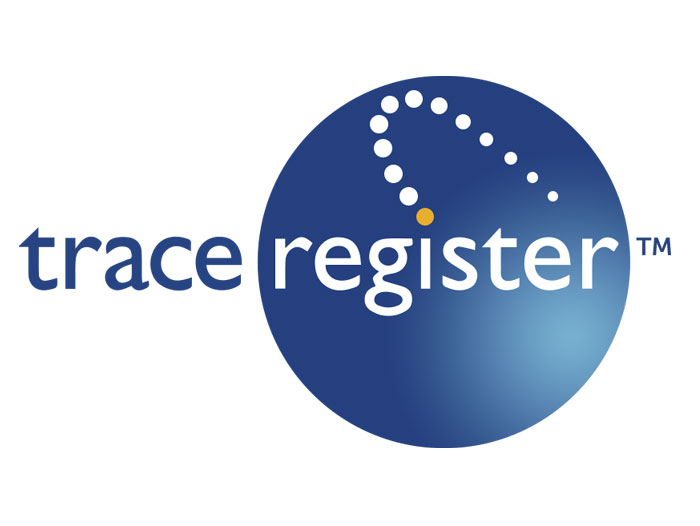Trace Register & Wholechain First Seafood Traceability Providers to Achieve Interoperability at Scale
February 13, 2024 | 4 min to read
In a significant advance for the seafood industry, Trace Register and Wholechain achieved interoperability between their traceability systems based on GDST standards. This development enhances regulatory compliance with initiatives like the Seafood Import Monitoring Program and the Food Safety Modernization Act. By facilitating seamless data exchange, it alleviates portal fatigue for suppliers and distributors. This collaboration exemplifies the power of interoperability in improving seafood traceability and supporting ESG commitments across the supply chain.

Seattle, WA, and Bloomfield Hills, MI – Leading seafood traceability solutions providers Trace Register and Wholechain announce a groundbreaking development for the seafood industry: interoperability between two different traceability systems based on Global Dialogue on Seafood Traceability (GDST) compatibility standards. These collaborative efforts are a significant advance in the industry’s ability to meet regulatory compliance, including the needs of the Seafood Import Monitoring Program (SIMP) and the Food Safety Modernization Act (FSMA) Rule 204. Improved traceability also helps to fulfill increasing consumer demands for end-to-end traceability.
“Interoperability is like email,” said Jayson Berryhill, co-founder of Wholechain. “You don’t ask someone which email provider they use, and you aren’t forced to maintain multiple email accounts so that you can send an email to each of your friends using different providers. You just send an email, and without knowing it, you see interoperability standards at work (yes, Gmail, Outlook, and others use a common standard). In the seafood industry, that common standard is GDST. GDST enables suppliers to seamlessly send data to their buyers using the GDST-enabled traceability system of their choice.”
Working with GDST and other industry stakeholders, Trace Register and Wholechain collaborated in the development of the standards, propelling seafood traceability forward. However, the two competitors have gone further by elevating efforts to practical implementation. They implemented an extension of GDST standards using GS1’s EPCIS capture interface to make GDST compatibility more practical between suppliers and buyers. The success of this development has led GDST to incorporate the EPCIS capture interface method as an official supplement to their comprehensive standards.
The integration achieved through this collaboration facilitates a seamless two-way exchange of information. Notable examples include Trace Register customers shipping to a Wholechain customer, a major privately held supermarket chain in the U.S. Likewise, Wholechain customers can ship to a Trace Register client, another significant player in the supermarket industry. The seamless, automatic GDST data transmission eliminates the need for manual keying and safeguards against losing critical GDST data points. It also exemplifies the power of collaboration and interoperability in advancing seafood traceability.
“These collaborative efforts toward interoperability initiated by GDST mark significant progress in meeting regulatory compliance, whether SIMP or FSMA 204,” said Heath England, President of Trace Register. “Interoperability greatly reduces or even eliminates portal fatigue. When systems can seamlessly “talk” to one another, then suppliers, producers, supermarkets, and distributors can each use a system that fits them best while having confidence that they can send and receive data regardless of what system their partners are using.”
The collected and shared data also empowers companies to back up ESG commitments with facts. Achieving this seamless exchange of reciprocal data exemplifies the transformative power of collaboration and interoperability to advance seafood traceability for every ecosystem member.
About Trace Register
Trace Register is the proven global seafood full-chain traceability leader, serving clients in more than 50 countries for over 15 years. Its TR5 platform takes an unprecedented approach, utilizing cutting-edge technologies and industry standards such as GDST and GS1 to create interoperability and transform seafood supply chains. TR5 provides the confidence to proactively address critical challenges and threats, plus regulatory requirements such as SIMP and FDA FSMA 204. The results are fewer problems, higher margins, and more satisfied customers. Visit www.traceregister.com to learn more.
About Wholechain
Wholechain is a blockchain-based traceability solution built to enable trust, coordination, and transparency in fragmented supply chains. Wholechain works across commodities, allowing businesses to manage risks and increase efficiencies while enabling consumers to make more responsible decisions. Wholechain is part of numerous industry initiatives for interoperability including GS1’s Seafood Industry Blockchain Interoperability POC, and is a former winner of the Fish 2.0 competition at Stanford for Supply Chain Innovation, and a winner of the FDA’s New Era of Smarter Food Safety Food Traceability Challenge. Find out more at Wholechain.com.
